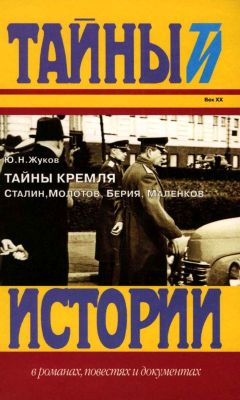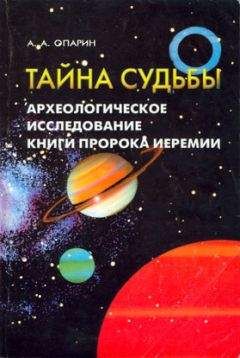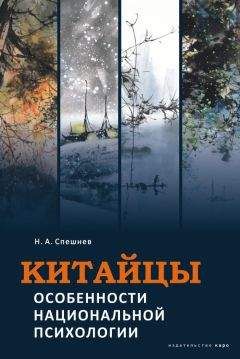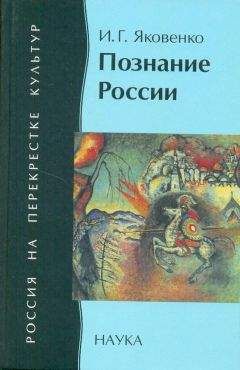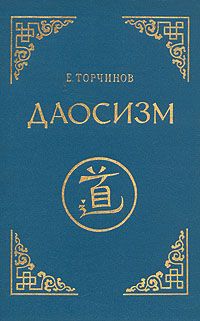Kim ManChoong - The Cloud Dream of the Nine
Yang, humbly kneeling, said to him: “Your Highness has condescended to visit my humble dwelling; what orders have you for me, please?”
The Prince answered: “I am an admirer of specially gifted men, even though I have had no opportunity to get acquainted with your Excellency. Now, however, I come with commands from His Majesty, and to convey his message. The Princess Nan-yang has now reached a marriageable age and we have to choose a husband for her. The Emperor, seeing your superiority, and greatly admiring your gifts, has made you his choice, and has sent me to let you know. In a little the Imperial orders will be issued.”
Yang, greatly alarmed, said: “The grace of heaven coming down to so low and humble a subject means 'blessing exceeding bounds,' and where blessing exceeds bounds it becomes disaster. There is no question about it. Your servant is engaged to the daughter of Justice Cheung, and almost a year has gone by since the gifts were exchanged. I beg and beseech your Highness to make this known to His Majesty.”
The Prince replied: “I shall certainly report as you say, but I regret it very much, for the Emperor's love of the highly gifted will turn out a disappointment.”
The Hallim answered: “This matter is of great concern in my world of affairs, and one I dare not deal lightly with. I shall bow before His Majesty and ask for punishment.”
The Prince then bade farewell and returned to the palace.
Yang then went to the apartments occupied by Justice Cheung, and reported to him what the Prince had said. Already Cloudlet had told the lady of the house, so that the whole house was upset and in a state of consternation, no one knowing what to do. Clouds of anxiety gathered on the old Justice's face and over his eyebrows, and he had no words to say.
“Do not be anxious,” said the Hallim. “The Emperor is good and enlightened and most careful to do exactly what is according to ceremony and good form. He would never set any of the affairs of his minister at naught, and though I am unworthy I would die rather than do the wrong that Song Hong did.”
The Empress Dowager had the previous day come into the Hall of the Fairies and had peeped in on Yang So-yoo. She had been greatly taken with him, saying to the Emperor: “He is indeed a fitting mate for Nan-yang (Orchid). I have seen him, and there is no longer any need for consultation.” Thus she commanded Prince Wol to report to Yang.
The Emperor himself now desired to make the same proposition. He was seated alone in the Special Hall. He was thinking over the wonderful skill that Yang had displayed in the writing of the character, and desiring once more to see what he had written, ordered one of the eunuchs to have the women bring him their compositions. They had each put the writing very carefully away, but one palace maiden took the fan on which Yang had written, went alone to her room, placed it in her bosom and cried all night over it, refusing to eat. This maiden's family name was Chin, and her given name was Cha-bong. She was a daughter of Commissioner Chin of Wha-joo. The Commissioner had died a violent death, and Cha-bong had been arrested and made a palace maid-in-waiting. All the women loved and praised Chin See. The Emperor himself summoned her to his presence and desired to make her one of the Imperial wives, but the Empress, fearing Chin See's surpassing beauty, did not consent. “Chin See is indeed very lovable,” said she, “but Your Majesty has had to order her father's execution. To have close relations with his daughter would break the saying of the ancients, which runs: 'Enlightened kings of the past put far away women who were related to the households of the punished.'”
The Emperor, recognising that this was true, consented. He had asked Cha-bong if she could read the character, and finding that she could, had appointed her to be one of his literary secretaries and put her in charge of palace documents. Also, the Empress Dowager had made her the literary companion of Princess Orchid, to read to her, and to drill her in the practice of composition. The Princess greatly loved Chin See for her beauty of character and the wonderful knowledge she possessed. She treated her like a near relative and would not let her out of her sight.
On that day she was waiting on the Empress Dowager in the Hall of the Fairies, ready to attend the commands of the Emperor. She was one of the women who received the verses composed by Yang. Yang's face and form were already deeply imprinted upon her heart. How could she mistake him? Waking or sleeping, she had never dropped him from her memory. She knew him at once, but Yang, having no knowledge that she was alive, and being in the presence of the Emperor, did not dare to lift up his eyes. He simply wrote and passed on what he had written.
Now that Cha-bong had seen him, her heart was all afire, but she stifled her feelings and emotions, and her desire to be known, fearing that she might arouse suspicion. After her return to her room, in distress over the hopelessness of trying to piece together the broken threads of her destiny, she had unfolded the fan and read over what he had written. She opened it again and again, not once putting it down. The writing read:
"This silken fan is round as the moon,
As fair and soft as the hand that holds it,
Over the harp strings its zephyrs play
Till it find its way to the Master's keeping.
As round it is as the shining moon,
May the soft fair hand ne'er lay it down,
Nor its silken smile e'en once be hidden,
In all the days of the happy spring.”
When Chin See had read the first lines she sighed, saying: “Master Yang does not know my heart. Even though I am in the palace, why should I ever be thought of as the wife of the Emperor?”
She read further and sighed again and said: “Although others have not seen my face, assuredly Master Yang will never forget me in his heart. His verses prove, however, that a foot away may mean a thousand miles. When I think of the willow song that I received when I was in my home I cannot stifle my sorrow.”
The tears dropped upon her dress. She now wrote a verse and added it to his upon the border of the fan, read it over, and sighed again. Suddenly she learned that a command had gone forth from the Emperor to collect all the fans and other things upon which Yang had written, Chin See in great alarm, and with terror entering into her very bones, said “I am doomed to die, doomed to die.”
Chapter VIIIA Hopeless Dilemma
THE eunuch said to Chin See: “His Majesty desiring again to see the writing of Master Yang, has commanded me to gather up the fans. May I have yours also?”
Chin See began to cry, saying: “Unhappy being that I am, I thoughtlessly wrote a companion verse under what the Master had written for me, and now it proves my death warrant. If His Majesty sees it there will be no chance of escape. Rather than die under the arm of the law, I would prefer to take my own life. When I am dead, may I trust you for the burial of my body? Please have pity on me, and see that my poor remains are not left to the mercy of the ravens.”
The eunuch replied: “Why do you, a literary secretary, say such things as these? The Emperor is kind and ready to take a liberal view of everything. He would never regard this as a serious offence. Even though he should be angry I will use my office to placate him; follow me.”
Chin See then followed the eunuch, who left her outside the palace while he went in alone. His Majesty looked at the compositions in order till at last he came to Chin See's fan, where he found someone else's verses just below Master Yang's. He wondered what it could mean and asked the eunuch. The eunuch said in reply: “Chin See told me that, never dreaming of your Majesty's asking to see them again, she had boldly written this just below the poem on her fan, bringing upon herself a sentence of death. Her purpose now is to take her own life, but I urged her not to do so and brought her here.”
The Emperor read what was written and it ran as follows:
"The rounded fan, like the shining moon,
Calls me back to the light that was dimmed so soon.
I never had thought through my tears and pain,
That a day would come when we'd meet again.”
When his Majesty had read it through, he said: “Chin See must have had some experience in the past that this refers to. She is highly gifted in her writing and worthy of praise.” He then told the eunuch to call her.
As she came in she bowed low in the court, and confessed her fault.
His Majesty said: “If you tell me the truth I will forgive your deadly sin. To whom do you refer in this verse?”
Chin See bowed again and said: “How can I dare to hide anything from your Majesty after what I have done? Before my home was destroyed, Master Yang, on his way to the Government examination, passed in front of our house. Unexpectedly we saw each other, and on his writing a love song to me, I composed a reply and sent it by a messenger, proposing marriage. He accepted it and so it was decided upon. The other day in the Hall of the Fairies, while in waiting on your Majesty, I saw him again and knew his face, but he did not see me. Your unworthy servant, thinking of what had passed, foolishly wrote this verse which has found me out. I deserve to die a hundred deaths.”
His Majesty, sorry for her sad experience, said: “Can you recall the love song that brought about your engagement of marriage?”
Chin See then wrote it out and presented it to him. He said to her: “Though your fault is a grievous one, still, because you have wonderful ability and are so greatly loved by the Princess Nan-yang, I forgive you. Be thankful for my clemency, and give your whole heart and attention to the service of the Princess.” He then gave her back the fan, which she received, and after thanking him again she withdrew.
On the same day Prince Wol returned from the home of Justice Cheung and told the Emperor that Yang's future was decided, and that he had already sent his marriage presents.
At this the Empress Dowager was very much displeased, and said: “Master Yang has already been advanced to the rank of Minister of State, and must know the laws and traditions of the Government. How can he be so determined to have his own way?”
The Emperor replied: “Yang So-yoo may have sent his marriage gifts, but that is not the same as having completed the marriage ceremony. I am sure that if one reasons with him, he will not fail to listen.” So the next day Minister Yang was summoned to the palace, and he at once appeared.
The Emperor said: “I have a sister who is uncommonly gifted, and, apart from yourself, I know of no one who could be a suitable mate for her. Prince Wol has already conveyed to you my wishes, but I hear that you decline and offer as an excuse the fact that you have already sent your marriage gifts to the house of Justice Cheung. Evidently you have not thought the matter over carefully. In olden days when a choice of Imperial daughter-in-law was to be made, sometimes even a wife was chosen, not to speak of one simply betrothed. One ancient king spent a whole life of regret thinking of the women who refused his command. My idea is that we are not just the same as the nation at large. We are the parents of the people, and therefore what binds the people does not necessarily pertain to us. Even though you should break off your engagement with Justice Cheung's daughter, she could easily find another opportunity. As you have not yet celebrated the marriage, in what way can you be said to have broken the law of human deportment?”
Yang humbly bowed and said in reply: “Your Imperial Majesty has not only not punished me, but like a father with his son has kindly and gently admonished me. I thank you most sincerely for this. I have nothing to say further except to add that my circumstances are not like those of others. I am only a poor literatus from a distant part of the country. I had not even a lodging when I first entered the capital. By the kindness of Justice Cheung I escaped the loneliness that beset me. Not only have I sent the marriage gifts, but I have taken the place of son-in-law to Justice Cheung, and also I have already seen his daughter's face, so that we are as good as husband and wife. That the marriage ceremony was not already performed was due simply to the fact that there were so many affairs of State to see to, and that I have had no opportunity to bring my mother up to the city. Now, fortunately, since the outside States are pacified and there are no longer fears for the Government, your humble servant intended to ask a short furlough to return home to bring his mother, choose a day, and have the marriage performed, when unexpectedly your Majesty's commands have come to him and he is alarmed and knows not what to do. I know that if I obeyed out of fear of punishment, Cheung's daughter would guard her honour safe till death, and never marry elsewhere. But if she should lose her place as wife would this not be reckoned a flaw in the reign of your Imperial Majesty?”
The Emperor replied: “Your ideas are most correct and good, and yet, if we speak according to the actual conditions of the case, you and Cheung's daughter are not really husband and wife. Why should she not marry elsewhere? My wish to decide this marriage with you is not only in order to place you as a pillar of the State and so reward you, but also to please the Empress Dowager, who is greatly taken with your bearing and commanding gifts, and does not leave me free to act as I might wish.”
Still Yang emphatically declined.
The Emperor said: “Marriage is a very important matter and so cannot be settled by a single conference; let us have a game of go and help to pass the time.”
His Majesty then ordered a eunuch to bring a go-board, and they sat down, Emperor and Minister, to try their skill. Only when the day grew late did they cease to play.
Yang returned home, and Justice Cheung met him with a very sorrowful countenance. Wiping his eyes he said: “To-day a command came from the Empress Dowager to send back to you your marriage gifts, so I passed the order on to Cloudlet and they are now in the park pavilion. If we think of it from our side, it puts us two old people in a very pitiful plight. I might bear it, but my old wife is overcome by it and has been rendered ill, and is now unconscious and unable to recognise her friends.”
Greatly upset by this, Yang turned pale and was unable for an hour or so to say anything in reply. At last he said: “If they realise the unfairness of this, and if I memorialise the Government against it with all my heart, will they not heed?”
The Justice waved his hand in opposition: “Master Yang, you have already run counter to the Imperial orders. If you petition against it I fear for the results; you may be severely punished. Your only way is to submit. Besides, too, under the circumstances your living here at the park pavilion will be embarrassing, so if you can find a suitable place elsewhere you had better move.”
[CUTLINE: Chin See's Fear: Cloudlet Says Farewell]
Yang made no reply but went into the Park Pavilion, and there was Cloudlet with tearful face and broken voice, who offered him the marriage gifts. “As you know,” said she, “I was ordered by the young mistress to wait on your lordship. I have been kindly treated and am grateful to you, but the devils have been jealous, and men have looked askance at our happiness, so that all has come to naught; and the marriage expectations of the young lady are hopelessly ended. I, too, must bid you a long farewell, and return to my mistress. Is it God, or Mother Earth, or devils, or men who have done it?” Her sobs and tears were most distressing.
